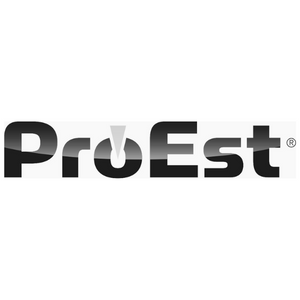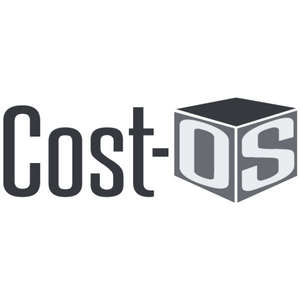The Right Match
This article was written by Michael Boren, CTO of Beck Technology, and published November 2017 on Construction Today.
In a lot of ways, business relationships are like your personal relationships. Whether you’re evaluating business partners, hiring new team members, or trying to win work, both parties are looking for that special spark. When the chemistry is right, great things can happen. But without it, you eventually find that the passion and caring just aren’t there, and a breakup is inevitable.
It’s easy to overlook a potential business partner’s negative quality when that person has something that you need, whether it’s a supply of steel beams, skilled labor, or your next big project. But think about it: How many times have you had a bad feeling about someone, then later wish you’d listened to that quiet voice that was telling you something was off all along?
During the “getting to know you” phase of the relationship, these kinds of perceptions matter. You can’t control whether a potential business partner lives up to their own marketing hype, but you can control the way your own company and people are perceived. Although there’s no AEC matchmaking website to help you find honest, dependable people to work with, when you define your own core values and then truly live up to them, you’ll earn a reputation that will help good business partners find you.
Matchmaking Rule #1: Know Yourself
Your construction business’s success depends on finding and choosing to work with people who share your core values and are committed to helping you succeed. In dating and in business, fruitful relationships start with knowing who you really are and living authentically.
Some companies never take the time to define their core values, and that’s like going into the dating world with no idea of who you are and what you really want. People who don’t understand their own values end up in a lot of dead-end relationships and tend to be taken advantage of along the way.
So, think about how you keep your promises to clients. Look at the values of other companies that you admire. Do employee surveys. Define your values with words that really reflect what’s important to you. Present your findings to everyone in your company. Absorb their feedback. And once you have your list of values, communicate them, over and over, and live by them, every day.
My company’s values, for example, are passion, innovation and caring – and they really do inform every decision we make and conversation we have. So much so that around the office, “PIC” has become a word we use to describe when we’re doing things right.
Plenty of companies talk a good game about their values, putting them up on their websites next to their mission statements, and cutting and pasting them into every proposal. But if the people inside your company don’t reflect your core values in their daily interactions, your business can easily run off track.
Matchmaking Rule #2: Keep It Real
Potential partners and employees are looking at your values from the outside, so it’s important to represent yourself honestly. We’ve all heard horror stories about people who show up for a blind dinner date, only to find that the person sitting across the table looks nothing like his or her picture and isn’t who they described themselves to be.
Don’t be that company that sends its most impressive senior project manager to the first meeting but assigns the project to a junior-level employee. Don’t let your marketing machine promote your company’s passion, when your office is full of people who really don’t care. Don’t ever let a core value be a lie. In dating and in life, nobody appreciates the bait-and-switch. If you don’t keep it real, people will see right through you.
When you get your core values right, you’ll be more attractive to potential partners and clients, and you’ll also attract the best and brightest employees. All of that naturally leads to more work and more revenue. But it won’t work if you just pay lip service to your values. You must reiterate, over and over, what it means to live by them.
Think about the last business relationship you had that went south. Were there warning signs that you missed or ignored? Did something feel shady? What would or did you do differently the next time? Do all of your employees represent your business the way you’d like them to?
Matchmaking Rule #3: If It’s Not a Good Match, Walk Away
Hold your team accountable. You may have to make hard choices about whether to let team members go, but you should never keep a star performer who operates counter to your core values. Companies always say that their employees are their greatest assets, but that’s only half the story. In truly excellent companies, the people exemplify the values that make their company the best at what it does.
If you’re looking for a life partner, there are plenty of dating websites that use algorithms and formulas to help you find that one special person who shares your interests and values. Your core values are the closest thing you’ve got to a dating app.
Once your values have become part of who you are, it’s easier to identify the same values in potential partners and employees. When you find them, the relationships work, and you both become stronger. When you don’t, that’s a partner you don’t want to waste your time with because you can be sure that you will leave that relationship worse off than when you entered it.
Take your time getting to know a potential business partner or employee before signing on the dotted line. Dig deep. Look at their past behavior, their current business practices, and the company they keep. Do they walk away from clients if their values don’t align with their own? Do they hire and fire internally to maintain the values they claim to espouse? Do they treat their clients, partners, and vendors the way they expect to be treated? Are they winning awards and recognition? Do they say they’re all about innovation, but their website hasn’t been updated since 2005? Are they setting trends, or following them?
Trust your instincts. If something doesn’t feel right, there’s a good chance that your values aren’t in alignment, and the two of you won’t make it beyond the honeymoon period. In business, it can be hard to walk away from a known stellar performer, but the truth is, values are more important than performance. How you’re treated is critical to the success of any relationship. If you’re not going to be happy, your clients aren’t going to be happy, either.
Matchmaking Rule #4: Measure What Matters
Long-term success requires you to stay focused on what your company is truly about. I believe very strongly that a company should not exist to earn money. This means getting rid of annual objectives that sound like, “We want to earn $X this year.” Setting goals and objectives like this can cause people and teams to run counter to what you believe in, and in the end, you will always pay for this behavior. Revenue should always be considered a byproduct of creating something great, providing real value and doing what’s right.
If you have the right core values and keep them at the center of everything the people in your company do, high morale and revenue are natural byproducts. The grass isn’t greener on the other side – it’s greener where you water it.
Companies grow and change, just like people do, so take time to reassess your core values every few years. I’m not saying that you should change your values if there is a misalignment. I’m saying that you should be aware of slight misalignments and make the right decision for your team. Either the stated values change, or the systems in place need to be refined to bring the team back into alignment with them. Catch misalignments early while they are small, so it’s easier to course correct.
Separate your teams into groups of people at the entry-level, mid-level, and senior level. Ask them to give you three words that describe the company. Find out if their perception of the company’s values matches your own. Then sit down and look in the mirror. Are you happy with what you see? If not, it’s time to fix your company culture.
It’s not always easy to have these kinds of discussions, but they’re the only way to set your company back on a true course. It’s like realizing you’re out of shape and committing to make it to the gym every day, even when you don’t always feel like it. The result is worth it.
Make your values part of new employee onboarding, quarterly meetings, performance reviews and job postings. Tell your team why you turned away that project that wasn’t a good long-term fit. Have debriefings with clients and ask them how well you performed against the measure of your own core values.
Some people reading this are probably thinking, “That’s easy for you to say, coming from a technology company. It doesn’t work like that in AEC.” And I get that. There may be times when, if you don’t win the next project, and the next one after that, people will get laid off. You might feel like values are nice to have, but in the end, you have to do what you have to do.
My response to that: When times are tough, it’s the worst possible time to throw away your core values. It only takes one action that isn’t in line with your core values to lose trust and respect, which will ultimately kill the relationship.
You can never go wrong by caring about your clients and doing the right thing for them. It pays off to approach your work with passion. Resist the urge to break out the smoke and mirrors to win the job. Keep your priorities straight and do the right thing. Always.
Creating and sticking to a set of core values may feel like the harder path, but in the long run, it will earn your company a good reputation and make your partnerships stronger, which will keep the work rolling in. Because when you need a wingman to help you win referrals, there’s nobody better suited for the task than a happy client who will tell everyone how you always, always, do the right thing.














